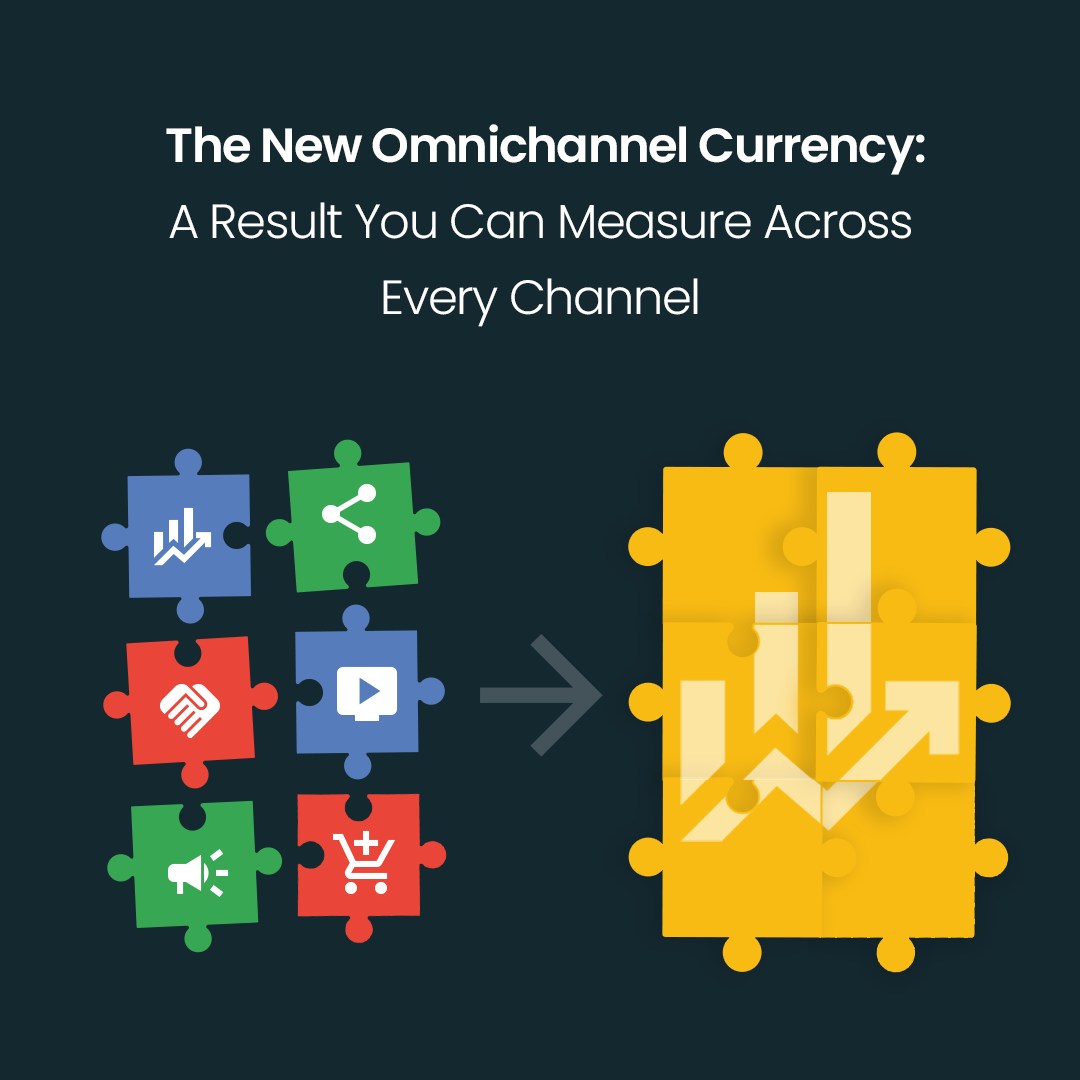Affiliate marketing: What are affiliate links?
Affiliate links are unique URLs used to track user traffic and activity between websites. They play a central role in affiliate marketing, enabling advertisers and publishers to measure the effectiveness of promotional efforts and determine commission payouts. By using affiliate links, businesses can accurately track which affiliate partner contributed to a sale or other valuable action.
Each affiliate link contains special identification parameters that allow analytical tools to monitor the user’s journey—from clicking the link to completing a purchase or signing up for a service. This data is essential for evaluating campaign performance and ensuring fair compensation for affiliate marketers.
Affiliate marketing thrives on proper affiliate management, which includes monitoring conversions, optimizing marketing campaigns, and refining strategies to maximize return on investment (ROI). Whether you're an advertiser looking to boost sales or a content creator aiming to monetize your audience, understanding the structure and function of affiliate links is the foundation of a successful affiliate marketing strategy.
How does affiliate marketing work?
Affiliate marketing operates on a performance-based model where publishers, also known as affiliate marketers, promote products or services using affiliate links. Each affiliate link contains a unique identifier that tracks the source of the traffic. When a user clicks on an affiliate link and is redirected to the advertiser’s (merchant’s) website, the tracking system records this interaction.
If the user takes a desired action—such as making a purchase, filling out a registration form, or subscribing to a newsletter—the system attributes the conversion to the affiliate who referred the customer. This ensures that publishers are credited for their efforts in driving sales or leads.
Affiliate marketers earn commissions based on predetermined payment models, such as:
Cost Per Action (CPA): The affiliate gets paid when a user completes a specific action, such as signing up for a service.
Cost Per Lead (CPL): The publisher earns a commission when a referred user provides contact information, like submitting a form.
Cost Per Sale (CPS): The affiliate receives a percentage of the revenue generated from a sale made through their affiliate link.
Effective affiliate marketing goes beyond just placing links—it requires strategic affiliate management. This includes tracking attribution, analyzing user touchpoints in the conversion funnel, and optimizing marketing campaigns to maximize performance. By leveraging data-driven insights, both advertisers and affiliate marketers can fine-tune their strategies for higher conversion rates and increased revenue.
Thinking of Becoming an Affiliate Marketer? The Benefits of Using Affiliate Links
Affiliate marketing offers significant benefits for both advertisers and publishers, making it a powerful strategy for driving sales and generating passive income. By using affiliate links, businesses can expand their reach without upfront costs, while content creators can monetize their platforms by promoting relevant products or services.
Benefits of Affiliate Links for Advertisers
For advertisers, affiliate links provide a performance-based marketing model that ensures they only pay for actual results. The Cost Per Sale (CPS) model minimizes financial risk, as commissions are only paid when a user makes a purchase. This makes affiliate marketing a cost-effective option for businesses of all sizes.
Other key advantages include:
Increased Sales & Lead Generation – Affiliate marketers help drive targeted traffic, often resulting in higher conversion rates.
Wider Audience Reach – Partnering with multiple affiliate marketers allows businesses to connect with niche audiences and expand their market presence.
Optimized Campaign Performance – Tracking affiliate sales and conversions provides valuable data for refining marketing strategies.
Benefits of Affiliate Links for Publishers
For publishers—bloggers, influencers, and website owners—affiliate marketing is an excellent way to generate passive income. By strategically placing affiliate links in content, they can earn a commission by promoting a product or service that resonates with their audience.
Some key benefits include:
Monetization Without Inventory – Publishers can earn commissions without dealing with product creation, shipping, or customer support.
Flexible & Scalable Earnings – With the right affiliate marketing strategy, publishers can grow their income by expanding their content reach.
Choice of Affiliate Programs – Affiliates can select offers that align with their niche, improving engagement and trust with their audience.
By using affiliate links effectively, both advertisers and publishers can maximize their marketing efforts and revenue potential. A well-planned affiliate marketing strategy allows businesses to reach new customers while providing content creators with a lucrative way to earn online.
Examples of Using Affiliate Links
Affiliate links play a crucial role in affiliate marketing, allowing publishers to earn commissions by promoting products or services through various marketing channels. These links can be integrated into blogs, social media platforms, email marketing campaigns, YouTube videos, and even podcasts, helping affiliate marketers monetize their content effectively.
For instance, a health and wellness blogger might write an in-depth review of a dietary supplement, incorporating an affiliate link that directs readers to an online store. If a reader makes a purchase, the blogger earns a commission by promoting the product. This method not only provides value to the audience but also helps drive affiliate sales.
Similarly, an Instagram influencer collaborating with a fashion brand can use affiliate links in post captions, stories, or even a dedicated affiliate marketing campaign. Every time a follower clicks the link and buys a recommended item, the influencer earns a commission, making social media platforms a powerful space for affiliate marketers to generate revenue.
Affiliate links are also widely used in email marketing, where newsletters contain exclusive affiliate links directing subscribers to special deals or product recommendations. When a recipient clicks on the unique affiliate link and completes a purchase, the sender benefits from affiliate income.
Many successful affiliate marketers focus on promoting affiliate products they have personally tested, as authentic reviews enhance credibility and encourage engagement. By combining content marketing with a well-structured affiliate marketing strategy, publishers can build trust with their audience and improve conversion rates.
How to Generate Affiliate Links to Make Money?
Earning from affiliate links requires more than just signing up for an affiliate program—it demands a strategic approach that combines digital marketing, data analysis, and relationship-building with affiliate partners. The key to success is not just generating links but also knowing how to use affiliate links effectively across the right marketing channels to drive traffic and conversions.
Unlike one-time promotions, affiliate marketing is a long-term process that involves continuous monitoring, campaign optimization, and adapting strategies to changing market trends. Successful affiliate marketers track performance, experiment with different content formats, and refine their approach based on audience behavior.
Below are essential strategies for creating affiliate links and maximizing earnings through affiliate marketing efforts.
Registering for Affiliate Programs – Choosing the Right Affiliate Network
Getting started in affiliate marketing begins with selecting the right affiliate program or affiliate network that aligns with your niche and target audience. Partnering with reputable affiliate platforms allows you to promote products or services from established brands while earning commissions through affiliate sales.
There are many affiliate programs available, each offering different commission structures and promotional opportunities. Some of the most popular affiliate networks include:
Awin – A global affiliate marketing network with a wide range of brands and industries.
TradeTracker – Focuses on performance-based marketing with real-time tracking tools.
WebePartners – Offers customized affiliate management platform solutions for businesses.
Admitad – Provides access to international brands and multiple monetization methods.
Performers – A high-quality affiliate platform known for exclusive brand partnerships and competitive commission rates.
By joining an affiliate network, you gain access to a variety of marketing campaigns and a unique affiliate link generator that helps track affiliate sales, traffic, and conversions.
Considering Direct Affiliate Partnerships
In addition to joining large affiliate networks, some businesses offer direct affiliate programs. These allow for negotiable commission rates, exclusive offers, and greater flexibility in marketing strategies. Working directly with a company often provides access to customized tracking tools, dedicated affiliate managers, and better payment terms.
Regardless of the affiliate marketing program you choose, it’s essential to carefully review:
Commission structures (CPA, CPS, or CPL models)
Payment terms and thresholds
Tracking and reporting tools
Promotional restrictions or guidelines
Choosing the right affiliate program ensures that you can effectively use affiliate links to drive revenue while aligning with your audience’s interests.
Market Potential Analysis and Selecting the Right Affiliate Partners – Where to Place Affiliate Links?
Not every affiliate partnership will deliver the desired results, making market analysis a critical step in affiliate marketing success. Selecting affiliate partners whose products or services align with your audience is essential for maximizing conversion rates and increasing revenue.
Key factors to evaluate when choosing an affiliate program include:
Brand Reputation – Partnering with well-established brands increases trust and improves engagement.
Offer Competitiveness – Choosing products with strong demand and unique selling points helps boost conversions.
Payment Models – Understanding whether the program follows CPS (Cost Per Sale), CPL (Cost Per Lead), or CPA (Cost Per Action) ensures you select the most profitable model.
Tracking & Analytics Tools – Reliable affiliate management platforms offer insights into performance, allowing for better campaign optimization.
Conducting Market Research for Affiliate Marketing Success
A successful affiliate marketer analyzes consumer trends, identifies market gaps, and evaluates competitor strategies. Assessing your own website’s traffic patterns and audience behavior can further refine affiliate marketing efforts, ensuring that affiliate links are placed where they will generate the most engagement.
Additionally, segmenting affiliate partners based on their sales potential allows for a more targeted approach, making it easier to optimize marketing efforts for higher return on ad spend (ROAS).
Creating Personalized Promotional Content – Not Just What to Recommend, But How
The success of affiliate links largely depends on the quality and relevance of the content in which they appear. A strong content marketing strategy not only drives traffic but also enhances engagement and conversion rates.
Effective affiliate content includes:
Blog Posts & Product Reviews – In-depth articles that provide value and include affiliate links naturally.
How-To Guides & Tutorials – Content that educates users while subtly recommending affiliate products.
Comparison Articles & Rankings – Side-by-side evaluations of affiliate products to help users make informed decisions.
Case Studies & Success Stories – Real-world examples that highlight the benefits of a product or service.
The Power of Storytelling & Social Proof in Affiliate Marketing
Using storytelling techniques can make affiliate marketing more effective by building emotional connections with the audience. A well-told story can be more persuasive than a simple product description.
Additionally, incorporating social proof, such as customer reviews, testimonials, and influencer endorsements, increases credibility and encourages conversions.
Diversifying content formats—from blog posts and videos to podcasts and infographics—allows affiliate marketers to reach a broader audience and maximize their affiliate marketing strategy.
Using Social Media for Affiliate Marketing – How to Make Money with Affiliate Links
Social media is one of the most powerful marketing channels for promoting affiliate links and driving sales. With platforms like Instagram, TikTok, Facebook, and YouTube, both businesses and affiliate marketers can reach highly engaged audiences. Affiliate marketing works by leveraging social media influencers, content creators, and paid ads to promote affiliate products effectively.
How Influencer Marketing Boosts Affiliate Sales
Influencer marketing is a major part of the affiliate marketing industry. When influencers receive a unique link from an affiliate program, they use it to promote products in their content. This allows them to earn a commission each time a follower makes a purchase.
Ways influencers put affiliate links to work:
Instagram Stories & Posts – Using swipe-up links or discount codes.
TikTok & YouTube Videos – Reviewing affiliate products and placing links in the description.
Facebook Groups & Pages – Sharing exclusive affiliate links with engaged communities.
Pinterest Pins – Driving traffic to affiliate sites through visually appealing content.
Using affiliate platforms, influencers and brands can track conversions, optimize campaigns, and maximize revenue. Affiliate marketers get paid based on performance, making social media an ideal space for growing an affiliate marketing business.
Paid Ads & Remarketing for Affiliate Marketing Success
Using paid social ads can significantly increase affiliate sales. Platforms like Facebook Ads and Instagram Ads allow affiliate marketers to target specific audiences based on interests, behaviors, and past interactions. This ensures that every affiliate earns a commission by reaching the right users.
Additionally, remarketing ads help re-engage users who clicked on an affiliate link but didn’t complete a purchase. The best affiliate marketing efforts involve continuously optimizing ad campaigns to improve performance and boost conversions.
Building an Email List for Affiliate Marketing Success
Email marketing is a great way to engage your audience, drive affiliate sales, and build long-term relationships with potential buyers. Unlike social media, where algorithms limit reach, email allows affiliate marketers to maintain direct contact with subscribers and consistently promote affiliate products.
A well-structured email marketing strategy enables involved affiliate marketers to send personalized offers, boosting conversion rates and maximizing affiliate income. Marketing your program through email ensures that your audience receives relevant promotions tailored to their needs.
Key Email Marketing Strategies for Affiliate Success
Segment Your Email List – Organizing subscribers based on interests and behaviors ensures that every affiliate offer aligns with user preferences.
Craft Engaging Subject Lines – Higher open rates start with compelling subject lines that capture attention.
Use Strong Calls to Action (CTAs) – Clearly direct users to click on affiliate links and complete a purchase.
A/B Test Your Emails – Experimenting with different email variations helps optimize performance and boost affiliate marketing spending.
Leverage Marketing Automation – Scheduling emails based on user behavior increases engagement and enhances affiliate marketing efforts.
By using affiliate platforms alongside email marketing, publishers can ensure consistent engagement, increase affiliate sales, and build a sustainable revenue stream. Successful affiliate marketers integrate email as a core component of their digital marketing strategy to maximize results.
Analysis of Results and Campaign Optimization
Achieving success in affiliate marketing requires continuous performance analysis and campaign optimization. Without monitoring key metrics, it’s difficult to improve conversion rates or maximize affiliate income.
To ensure successful affiliate campaigns, marketers should track:
CTR (Click-Through Rate) – Measures how often users click on affiliate links compared to total impressions.
CR (Conversion Rate) – Evaluates how many clicks on an affiliate link result in a purchase or desired action.
EPC (Earnings Per Click) – Determines how much an affiliate marketer earns per click, helping identify the best affiliate programs.
ROI (Return on Investment) – Measures overall profitability and the effectiveness of affiliate marketing efforts.
Optimizing Affiliate Campaigns for Maximum Performance
Using an affiliate management platform allows marketers to track the entire conversion path, identify weak points, and refine their affiliate marketing strategy. Analyzing historical data helps predict trends, plan promotions in advance, and adjust marketing channels for better engagement.
A successful marketing strategy involves continuous testing and adjustments, such as:
Optimizing Content & Offers – Ensuring that blog posts, videos, and emails contain high-converting affiliate links.
Testing New Distribution Channels – Expanding to social media, email marketing, and paid ads for better reach.
Understanding User Behavior – Studying how visitors interact with affiliate sites to improve placement of affiliate products.
By continuously refining affiliate campaigns, involved affiliate marketers can increase affiliate sales, improve engagement, and maximize earnings from affiliate programs. Affiliate marketing is a great long-term strategy, but only when backed by data-driven decision-making.
Affiliate Marketing Success Checklist
Start an affiliate program by choosing the right affiliate platform or direct affiliate partnership
Conduct market analysis to select the best affiliate programs that align with your audience
Create high-quality content that naturally integrates affiliate links across marketing channels
Leverage social media by collaborating with influencers and optimizing affiliate marketing campaigns
Build an email list to promote exclusive affiliate links through email marketing efforts
Track performance metrics such as CTR, CR, EPC, and ROI to evaluate and optimize affiliate marketing efforts
Refine marketing strategies based on user behavior, data analysis, and emerging trends
Ensure compliance with affiliate program guidelines, including properly structuring affiliate links and using affiliate cookies correctly
Summary
Acquiring and monetizing affiliate links requires a combination of technical expertise, strategic planning, and analytical skills. A successful affiliate marketer continuously tests new solutions, optimizes campaigns, and adapts to changing market conditions to maximize earnings.
With the right affiliate program, a data-driven approach, and effective digital marketing strategies, affiliate marketing is a great way to build a sustainable income stream. Whether you're a business looking to scale or a content creator aiming to earn a commission by promoting products, affiliate marketing—a win-win for everyone— remains one of the most effective revenue-generating models in e-commerce.






